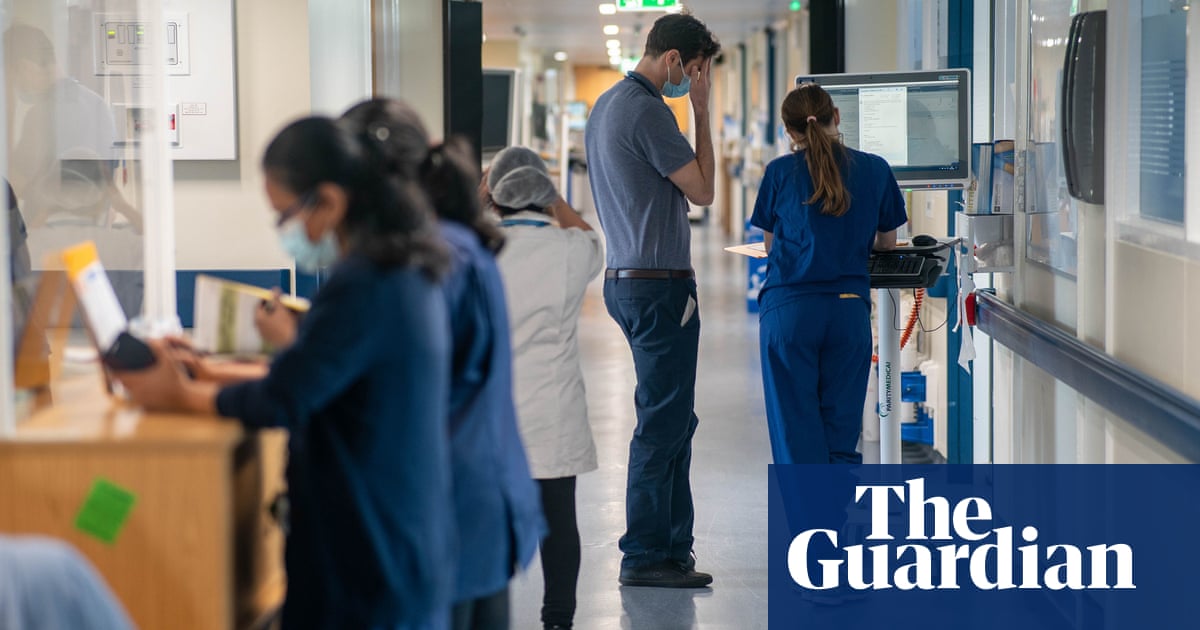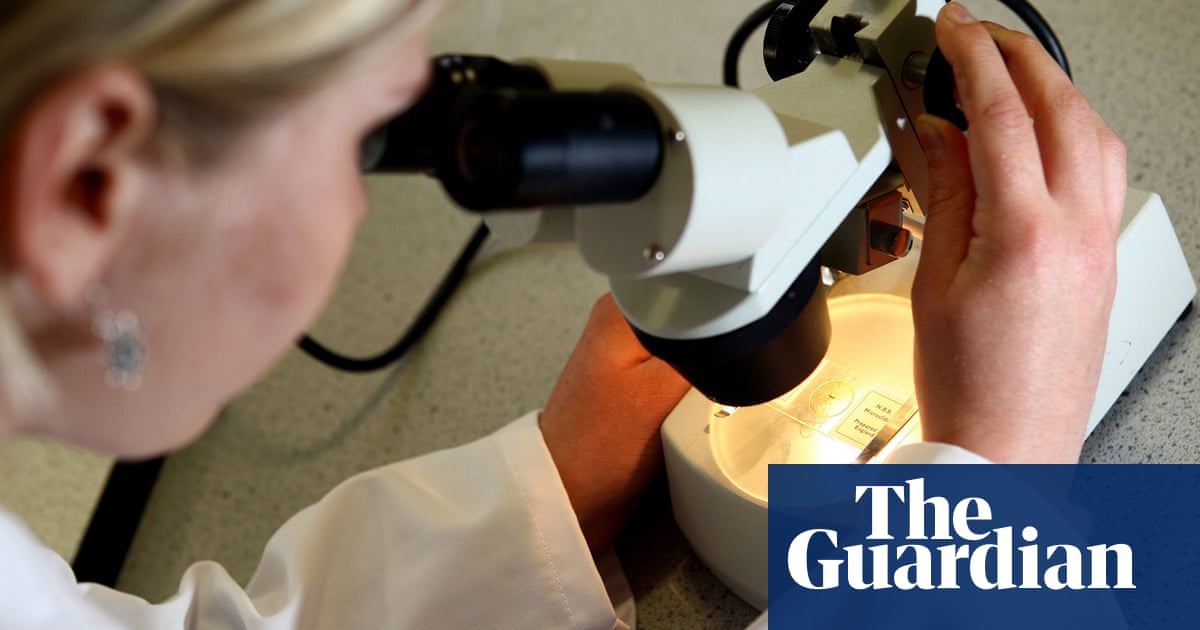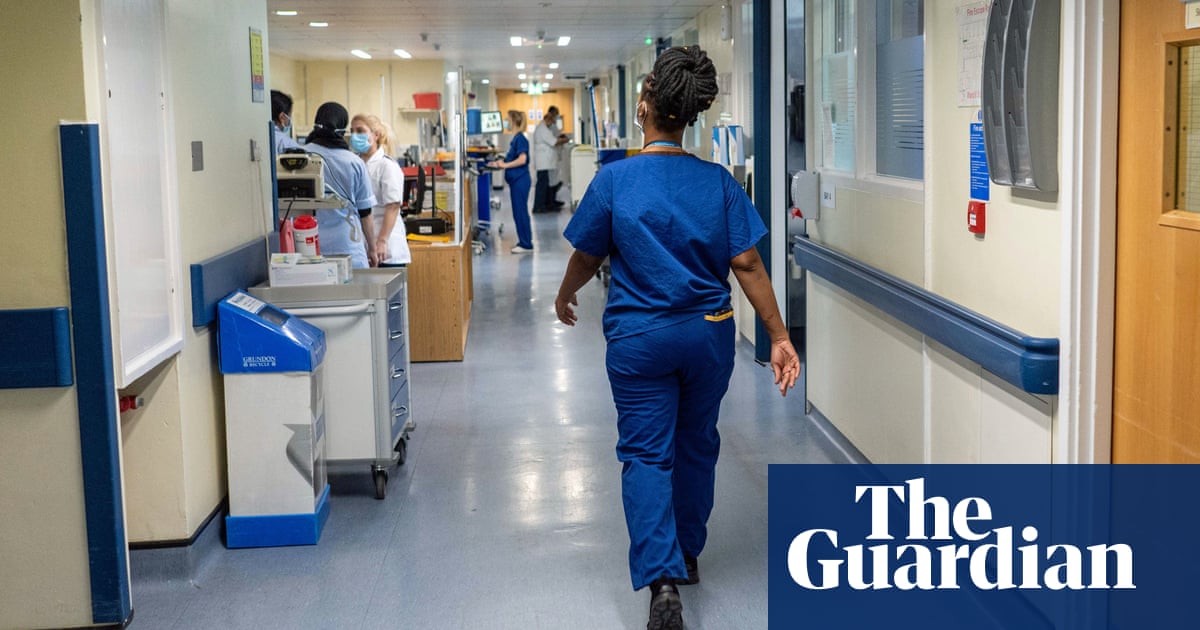
More than a million patients in England have experienced a delay in their cancer care since Rishi Sunak became prime minister 10 months ago, new NHS figures reveal.
Analysis by the House of Commons library of official waiting time performance data shows that huge numbers of people with suspected or confirmed cancer have not been able to see a specialist for the first time, get a diagnosis or start treatment within NHS target times since last October.
For example, between October and June, 418,412 people had to wait longer for their first appointment with an oncologist after being urgently referred by a GP than the two-week supposed maximum.
An even larger number – 623,676 – either did not receive a diagnosis of cancer or were not told they were clear of the disease within 28 days after their referral during those months. That equates to three in 10 of all suspected cancer patients, said the Labour party, which commissioned the analysis.
The library’s research also confirmed what cancer charities have been highlighting for some time, that most of the NHS’s existing nine cancer performance targets have not been met for years.
Earlier this week, the government and NHS England announced that they are scrapping those measures of performance and replacing them with just three successors.
Keir Starmer, the Labour leader, claimed inisters were “moving the goalposts” because the NHS’s longstanding failure to meet key cancer targets had become politically embarrassing.
The move had divided opinion among cancer charities. Cancer Research UK has welcomed the switch. It believes the new emphasis being put on everyone suspected of having cancer receiving a diagnosis within 28 days of a GP referral will benefit patients.
Macmillan Cancer Support has also given the plans a cautious welcome, saying faster diagnosis “should help improve patient outcomes”.
However, Prof Pat Price, a leading cancer doctor and co-founder of the Catch Up With Cancer campaign, accused the government of watering down long-established targets.
Breast Cancer UK also criticised ministers for including cancer in a new major conditions strategy rather than bringing forward a dedicated plan to tackle the disease and improve services.
All the charities urged the NHS and ministers to give hard-pressed cancer services more staff and more funding to help overcome delays that have become commonplace and warned that some people’s cancer could become too advanced to be treatable.
Steve Barclay, the health secretary, added to the confusion surrounding cancer waiting times by suggesting on Tuesday, in an interview with the Daily Telegraph, that some patients with potential symptoms could bypass their GP and refer themselves direct to a diagnostic centre or specialist doctor.
The British Medical Association accused Barclay of putting forward “a seductively simple plan” that could add to the strain on already hard-pressed diagnostic services.
Dr Katie Bramall-Stainer, chair of the BMA’s GPs committee for England, stressed that detailed medical triage of patients who may have cancer – currently done by GPs – should continue.
“It might sound like a seductively simple plan to bypass the GP and go for a diagnostic test,” she said.
“But, as a GP, my priority when triaging appointment requests in surgery is to look for these ‘red flags’ and bring the patient in as soon as possible, usually the same day.
“Like with the rest of the overwhelmed NHS, triage is essential – and GPs are expert generalists who have trained for years to know when a patient needs to be referred for cancer or if it could be something else.
“This suggestion might sound like a good idea. But it will rapidly overwhelm radiology departments, and lead to even longer waiting lists for scans, and potential missed diagnoses – putting yet more pressure on the NHS.”
NHS England said there was “widespread clinical support for reforming NHS cancer standards”.
The changes are needed “to reflect what matters most to patients and to align with modern clinical practice”, it explained.












